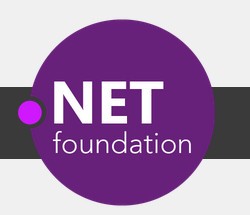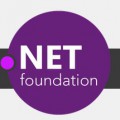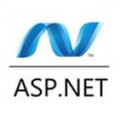A Strategic Guide for Hiring Top-Notch .NET Developers
— April 10, 2024The following guide will help you carefully hire exceptional .NET professionals, enabling a smooth integration into your current team and pushing your project to success.
Developing a Deep Understanding of the .NET Landscape
Before starting on the recruiting process, you should have a solid grasp of the .NET context. Understanding important structures, frameworks, and tools enables you to:
- Developed targeted job descriptions. Clearly define the technologies and frameworks that your project requires (for example, ASP .NET MVC, Entity Framework).
- Effectively evaluate resumes: Identify the most promising candidates by assessing their expertise in the relevant areas.
- Conduct insightful technical interviews. Ask questions that measure not just academic knowledge but also actual problem-solving abilities, ensuring that you hire developers who can provide concrete outcomes.
Essential .NET Technologies
- The .NET Framework versions 1.0 through 4.8 (informed of the impending .NET 6)
- Languages: C#, with support for F#, VB .NET, and C++/CLI.
- Web Frameworks: ASP .NET MVC, ASP .NET Web API, and ASP .NET Web Forms.
- Desktop frameworks include WPF and Windows Forms.
- Data Access: Entity Framework and ADO .NET.
- Unit testing using NUnit and xUnit.
Pro Tip: Create a detailed internal reference document covering these important technologies to ensure smooth cooperation throughout the recruiting process.
Uncovering True Potential: Beyond the Resume
Resumes are a beginning point, but to uncover a candidate’s full potential, go deeper. Here are some techniques for you to use:
- Review project descriptions: Pay great attention to the intricacy and size of the candidate’s work. Experience with large-volume data projects demonstrates ability to solve complex problems.
- Open-Source Contributions: Participating in open-source projects displays a commitment to ongoing learning and cooperation, showing mid-level to advanced abilities in real-world circumstances.
- Conferences and Meetups Participation: Active involvement in industry events demonstrates a real desire to keep current with the newest developments in the .NET domain. This demonstrates a dedication to professional development and a desire to be at the forefront of the field.
Pro Tip: Dedicate a special interview segment to investigating these areas of the candidate’s past, getting vital insights on their work ethic, enthusiasm for the subject, and ongoing learning endeavors.
The Art of Technical Interviews: Tapping Expertise
The technical interview is the cornerstone of your assessment process. Here’s how to do a good interview.
- Tailored questions for project needs: Move beyond generic .NET queries and instead ask design questions that are particular to the technology and issues your project will face. This guarantees that you select candidates with the specific skill sets necessary for success.
- Evaluating Problem-Solving Approach: Provide a real-world situation and examine the candidate’s logical process as they approach a solution. This demonstrates their critical thinking and analytical ability, which provide useful insights into how people tackle complicated challenges.
- Balancing Theory with Practice: While academic knowledge is necessary, evaluate actual coding abilities first. Use online coding quizzes or whiteboard coding challenges to assess their ability to develop clean, efficient, and maintainable code.
Sample interview questions:
- Discuss the fundamental distinctions between ASP .NET Web Forms and ASP .NET MVC frameworks. Can you explain the benefits of each in particular project contexts? (This evaluates comprehension of web development paradigms and the ability to make educated technological decisions.)
- Describe a tough project you completed. How did you handle the challenge, and what was the result? What did you gain from this experience? (This assesses problem-solving abilities, the capacity to learn from prior experiences, and possible areas of specialty.)
- Explain your method for diagnosing a memory leak in a .NET application. (This evaluates practical troubleshooting abilities and the ability to detect and fix complicated technological difficulties.)
Pro Tip: Include a pair-programming session in the interview to assess the candidate’s collaborative coding skills, communication style, and ability to work well in a team context.
Creating a Cohesive Team: Beyond Technical Skills
While technical competence is critical, don’t underestimate the value of cultural fit. A developer that easily fits into your current team dynamic promotes a more productive and collaborative atmosphere, resulting in a better quality project conclusion. Here’s what you should consider:
- Communication Style: Can the applicant effectively communicate technical ideas to both technical and non-technical team members? Effective communication is essential for project clarity, effective cooperation, and information exchange.
- Learning agility: Does the applicant show a readiness to embrace new technologies and adapt to changing project requirements? The .NET ecosystem is continuously changing, thus the ability to learn and adapt is critical for continuing success.
- Assess the candidate’s teamwork and collaboration skills. Can they successfully exchange expertise, cooperate on problem solutions, and foster a pleasant and supportive team culture?
Pro tip: Use behavioral interview questions to learn about the candidate’s previous teamwork experiences. This explains their attitude to cooperation, communication, and dispute resolution.
Conclusion: Hiring Excellence
By developing a thorough understanding of .NET, implementing a multifaceted evaluation process, and prioritizing cultural fit, you can successfully hire top-tier .NET developers who will significantly improve your team’s capabilities and propel your project to exceptional results.
Bonus Tip: Throughout the hiring process, highlight your company’s culture and intriguing initiatives. This not only attracts brilliant people, but it also allows you to discover applicants who are really excited about joining your team and contributing to your goal.
Using these complete tactics will help you attract exceptional .NET engineers and build a successful team, beyond the constraints of a resume-centric strategy.







